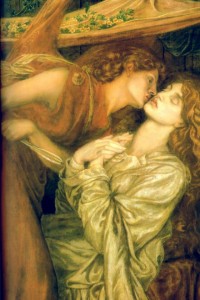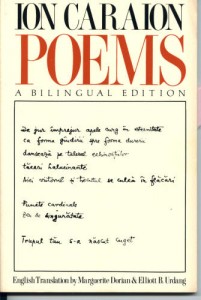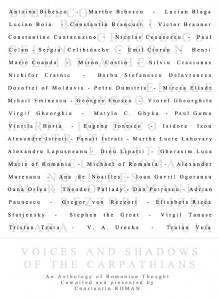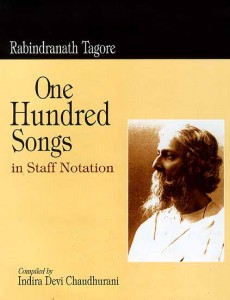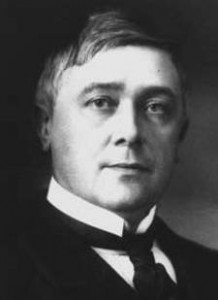The Rev. Canon Patrick Comerford on the Centenary of the Anglican Church, Bucharest: 1913 – 2013
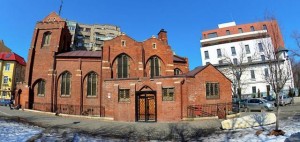
Anglican Church, Bucharest
Having written yesterday about the delights of visiting the Church and Monastery of Stavropoleos in Bucharest six years in October 2013, I was reminded that this weekend the Anglican Church of the Resurrection in Bucharest’s Gradina Icoanei is celebrating the centenary of the first cornerstone of the church being laid in 1913.
To celebrate the centenary, the church is holding a special Eucharist at 10 a.m. this morning [Sunday, 20 October 2013]. Bishop John Flack, a former Director of the Anglican Centre in Rome, will preside at this morning’s Eucharist, and the attendance is expected to include the British Ambassador, Martin Harris, and members of the English-speaking communities in Bucharest.
The Anglican church in Bucharest is part of the Diocese of Europe and is part of the Archdeaconry of Central Europe, based in Vienna. This attractive, red-bricked church in the centre of the Romanian capital has a rich and interesting history.
The earliest records of the Church of the Resurrection date from the 1860s, although there was an Anglican presence in Bucharest from 1850 under the auspices of the Church’s Mission to the Jews.
The early records include the burial of Katherine Hoabowsky on 22 July (OS, 2 August NS) 1862, and in September 1868 the Revd FG Klenheim presided at a marriage according to the rites and ceremonies of the Church of England in the house on Strada Olteni where the London Jews’ Society Mission was based, when Joseph Lee married Eliza Wiest, daughter of the artist Louis Wiest.
The Revd FG Klenheim launched a fund to raise money to build an Anglican Church in Bucharest, and Mrs Klenheim was appealing for funds in August 1881.
In 1888, he was succeeded in 1888 by the Revd J. Muhlenbruch, although it seems nothing was done during his time to raise more funds for building the proposed church. When the Revd R. Stewart Patterson was appointed Chaplain of Bucharest and the Danube ports in 1896, sustained efforts were made once again to raise money to build a new church.
In 1900, the British Minister or Ambassador, Sir John Gordon Kennedy (1836-1912), obtained the grant of a piece of land at the junction of Strada Pictor Verona and Strada Xenopol, in the corner of the Gradina Icoanei (The Park of the Icon) from the Commune of Bucharest in a deed of gift dated 2 December 1900.
The cornerstone of the church was laid 100 years ago today on 20 October 1913. The external fabric was completed by 1914, and the interior furnishings had been ordered from England. However, building work was interrupted with the outbreak of World War I.
The first service was held in the new church on Easter Day, 4 April 1920, and it was soon completed, and was dedicated by the Bishop of Gibraltar on 5 November 1922.
In the early days, Queen Marie of Romania, a granddaughter of Queen Victoria, regularly attended the church. When she married Crown Prince Ferdinand of Romania, she joined the Romanian Orthodox Church, but she continued to attend English-language Anglican services in Bucharest. It was largely due to her support that the present building was completed. She remained a regular communicant at the church until she died in 1938.
After Queen Marie’s death, a chalice and paten were donated to the Church in her memory. Other members of the Romanian royal family attended the church over the years, including her daughter who later became the Queens of Yugoslavia and Queen Sophia of Greece, another daughter who became Queen of Yugoslavia, and a daughter who became an Orthodox nun and founded monastery in the US.
From 1922, services were held regularly in the church, apart from a period during World War II, from Christmas Day 1940 to Christmas Day 1944, when the church was closed during the Nazi occupation of Bucharest.
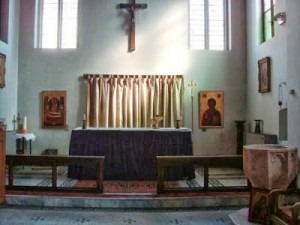
Interior, Anglican Church of the Resurrection, Bucharest
(photo Patrick Comerford)
A wooden panel at the back of the church records the names of the chaplains over the years. Although there is a telling break from 1940 to 1966, the church was far from inactive during these “blank” years. The church managed to maintain worship throughout the worst years of the Stalinist period, with priests visiting from places as far away as Vienna and Malta to conduct services, to baptise and marry members of the British and US diplomatic communities, and to ensure the upkeep of the building.
Among the many icons presented to the church is one donated by the Patriarch of Romania to the Bishop of Gibraltar when Archbishop Michael Ramsey visited Romania in 1965. A full-time chaplaincy was established a year later in 1966, and the chaplains included the Revd Dr David Hope, later Archbishop of York.
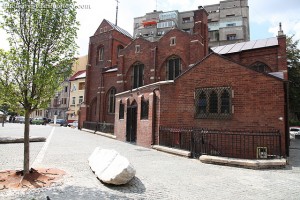
Anglican church Bucharest (ph: Andreea)
As well as being Chaplain to the Church of the Resurrection in Bucharest, these priests have also been the Archbishop of Canterbury’s official representative, or Apokrisarios to the Orthodox Patriarchs of Romania, Bulgaria, and Serbia, although the Anglican congregations in Belgrade and Zagreb have since formed their own separate chaplaincy.
During the 1970s, there were suggestions that the church might be better used as a library and conference hall for the British Council. But these suggestions were resisted, and the church has the distinction of being the only Anglican church building in the former Eastern bloc countries to have remained open throughout the post-war Communist period.
Life under the Ceausescu regime became increasingly harsh for Romanians in the 1980s, and even for members of the diplomatic and business communities movement was restricted and surveillance was constant.
In 1983, the chaplain, the Revd Robert Braun, wrote that there was “no harassment from the authorities other than a security van which occasionally positions itself outside the doors on Sundays to photograph the worshipers.” However, the few Romanians who dared to worship at the church risked losing their jobs, their homes and even their freedom.
Chaplains actually lived at the church in those years, in the rooms that now serve as a vestry and meeting room. In the late 1980s, the Revd Ian Sherwood from Dublin was subject to constant annoyance, with car tyres slashed and lipstick daubed over the carpets in his flat. One day, staff in the British Embassy were surprised to hear him singing Gloria in the church – a serious search for bugging devices was carried out with consequent damage to the walls of his flat.
It is no surprise that under these conditions it was hard to attract priests to the chaplaincy.
During the revolution in 1989, three people braved the shooting in the streets to get to church on Christmas Day. When they arrived, they were told the service had been cancelled. However, their presence, even faced with locked doors, ensured that prayers were offered at the church that day.
A legendary character all through these times was Maria, the original “guardian” and cleaner of the church. She faithfully and courageously continued to care for the church when it stood unused during the World War II, and was paid for her work by the Swiss Embassy. In 1982 she was presented with the bronze cross of the Order of Saint Augustine of Canterbury by Archbishop Robert Runcie of Canterbury in recognition of her 60 years of service.
The civil authorities forced Maria to retire at the age of 78, but she continued to keep contact with the church until her death at the age of 86 in 1991.
The Collect at this morning’s centenary Eucharist prays:
Gracious Father, we your children humbly ask your blessing upon us as we celebrate the 100th anniversary of the founding of the Church of the Resurrection, Bucharest. You have shaped us into a community where the dignity of each person is respected, where one can feel at home and worship you with joy and peace. By your grace we have responded to your call to bring all people into your family, the Church. We desire to reach out to the least among us, to the poor, the marginalised and the alienated. As your faithful servants, we gather and are nourished by your Word and the Sacraments so that we may bring your love and healing to others. Rooted in your Holy Spirit, may we face our future with the same faith, hope and vision of those who have preceded us, and may we commit ourselves to a new century of service.

Rev. Canon Patrick Comerford, Dublin
Patrick Comerford, (Dublin, Ireland) – short Biography:
I am a priest in the Church of Ireland (Anglican), Lecturer in Anglicanism and Liturgy in the Church of Ireland Theological Institute, Adjunct Assistant Professor in the University of Dublin (Trinity College Dublin) and a Canon of Christ Church Cathedral, Dublin. For many years I worked as a journalist with the Lichfield Mercury, the Wexford People and The Irish Times, where I was Foreign Desk Editor until 2002.
Visit me on Facebook: http://www.facebook.com/revpatrickcomerford
* * * * * * * *
Revd. Canon Patrick Comerford, BD, Dip Ecum, FRSAI, FASC
Lecturer in Anglicanism, Liturgy and Church History
Patrick Comerford teaches the modules on Liturgy, Worship and Spirituality (TH 8824), Anglican Studies in an Irish Context (TH 8825), and Church History (TH 7864). He has studied journalism in Japan and theology at the Irish School of Ecumenics, TCD, the Kimmage Mission Institute, and Maynooth, with further studies at the Institute for Orthodox Christian Studies (Cambridge) and the Institutum Liturgicum (London). He holds a BD from Maynooth, a Postgraduate Diploma in Ecumenics from Trinity College Dublin, and has certificates from the IOCS, Cambridge, the Institutum Liturgicum, London, and NSK, Tokyo. He received the Oulton Prize for Patristic Studies in 2008.
A former journalist, Patrick was Foreign Desk Editor of The Irish Times for eight years, has worked with some pf the main Anglican mission agencies, and is a member of the board and council of USPG (Anglicans in World Mission).
He is the author of Embracing Differnce (2007), Reflections of the Bible in the Quran (2009) and A Romantic Myth (2009).
He is a contributor to Christianity (2001), The Laity and the Church of Ireland, 1000–2000 (2002), Untold Stories (2002), the Encyclopaedia of Ireland (2003), The Wexford Man (2007), The Lure of Greece (2007), China and the Irish (Dublin 2009, Beijing 2010), Celebrating the Oxford Movement (2009), Victory or Glorious Defeat (2010), A History of Enniscorthy (ed Colm Tóibín, 2010), and Treasures of Irish Christianity, Volume II, A People of the Word (ed Salvador Ryan and Brendan Leahy, 2013).
He is a member of the General Synod, the Commission for Christian Unity and Dialogue, the Anglican Affairs Working Group, and a Canon of Christ Church Cathedral, Dublin. He was the chaplain to the Anglican Primates’ Meeting in Dublin in 2011.
His research interests include mission theology, Christian–Muslim relations, Orthodox spirituality, patristics and the role of architecture in creating liturgical space.


